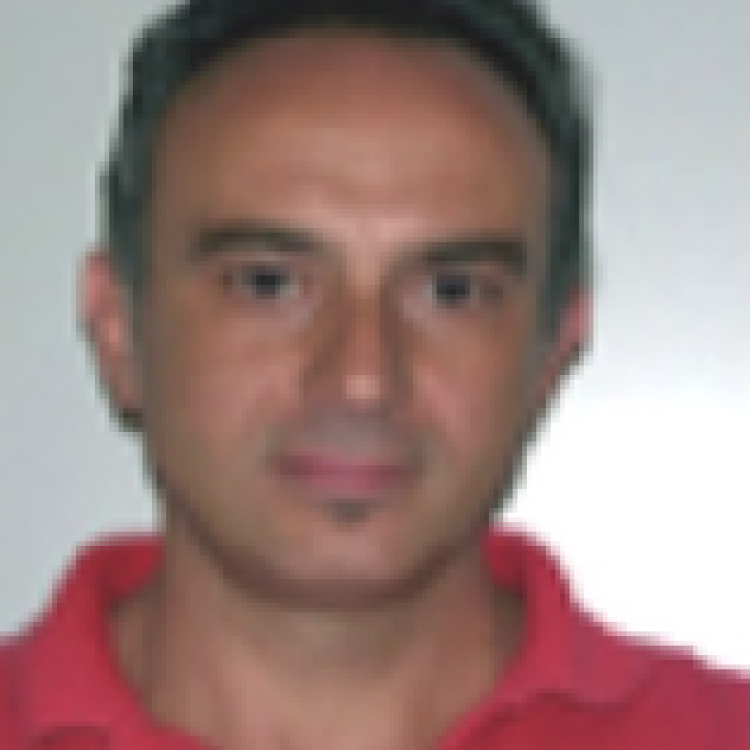
Domenico Grieco
MD, PhD
- 1985: MD degree, summa cum laude, University of Naples "Federico II".
- 1992: PhD degree in Molecular Pathology, University of Naples "Federico II".
- 1986-1988: Fogarty Fellow; NIADDK, NIH, Bethesda, MD, USA.
- 1990-1993: Postdoctoral Fellow, Institute of Cancer Research, Columbia University, NY, USA.
- 1993-95: Visiting Scientist, Institute of Cancer Research, Columbia University, NY, USA. 1990-1995: Fellowship from American Italian Fundation for Cancer Research (NY, USA).
- 1993-1994: Fellowship from Associazione Italiana per la Ricerca sul Cancro (AIRC, Italy).
- 1995-1996: Fellowship CNR at Universita’ di Napoli “Federico II”.
- 1998-2002: Ricercatore Universitario at the Faculty of Medicine, University of Catanzaro, Italy.
- 1998-2002: "New Unit Start Up Grant" (NUSUG), 5 year Award Grant from Associazione Italiana per la Ricerca sul Cancro (200.000.000 lire/year).
- 2008-2008: UICC-ICRETT (Technology Transfer) Fellowship at New York University, Dept. of Pathology, NY, USA.
- 2018 to present: Full Professor at University of Naples “Federico II”, Italy.
- 2002-2018: Associate Professor at University of Naples “Federico II”, Italy.
- 2004 to present: Faculty Member of Faculty of 1000 Biology.
- 2012 to present: Editorial Board Member of F1000 RESEARCH.
Our research is focused on the study of basic biochemical processes regulating progression through the cell division cycle. In perticular, in the processes regulating the transitions between the phases of chromosome replication and that in which of replicated chromosomes are segregated to form daughter cell genome. Our research is centered on the regulation of the activity of Cdk1, the cyclinB-cdk1 complex, major mitosis-promoting kinase, and how this must be controlled for correct onset of mitosis and assembly of the mitotic spindle, the microtubular structured deputed to segregate replicated chromosomes. We also focus on the control of Cdk1 acion through the regulation of Cdk1 counteracting phosphatases.. Finally, we are assessing how the new layers of regulation we unveiled can be exploited for camcer therapy. Many anticancer drugs affect the process of cell division and spindle assembly, thus, finding new biochemically targetable steps in these processes may help improve the efficacy of therapeutic outcomes in new combination therapies
- Control of Cdk1 activity in mitotic spindle assembly
- Protein phosphatases that reverse mitotic phosphorylation
- Control of Cdk1 activity in cancer therapy
Angela Flavia Serpico, Dr, Phd student
Giuseppe D'Alterio, student
Luca Nardella, student
Caterina Pisauro, student
Francesco Febbraro, student
Roberta Visconti, Dr, CNR researcher
1) Cervone N, Della Monica R, Serpico AF, Vetrei C, Scaraglio M, Visconti R, Grieco D. (2018). Evidence
that PP2A activity is dispensable for spindle assembly checkpoint-dependent control of Cdk1.
Oncotarget. 9:7312-7321. doi.org/10.18632/oncotarget.23329.
2) Visconti R, Della Monica R, Grieco D. (2016). Cell cycle checkpoint in cancer: a therapeutically
targetable double-edged sword. Journal of Experimental and Clinical Cancer Research. 35:153. Review.
3) Della Monica R., Visconti R., Cervone N, Serpico AF, Grieco D. (2015). Fcp1 phosphatase controls
Greatwall kinase to promote PP2A-B55 activation and mitotic progression. eLife pii: e10399. doi:
10.7554/eLife.10399.
4) Visconti R, Della Monica R, Palazzo L, D’Alessio F. Raia M, Improta S, Villa M.R, Del Vecchio L,
Grieco D. (2015). The Fcp1-Wee1-Cdk1 (FWC) axis affects spindle assembly checkpoint robustness and
sensitivity to anti-microtubule cancer drugs. Cell Death and Differentiation. 22:1551-1560.
doi: 10.1038/cdd.2015.13
5) Visconti R., Palazzo L., Della Monica R. Grieco D. (2012). Fcp1-dependent dephosphorylation is
required for M-phase-promoting factor inactivation at mitosis exit. Nature Communications. 3:
894 DOI: 10.1038/ncomms1886.
